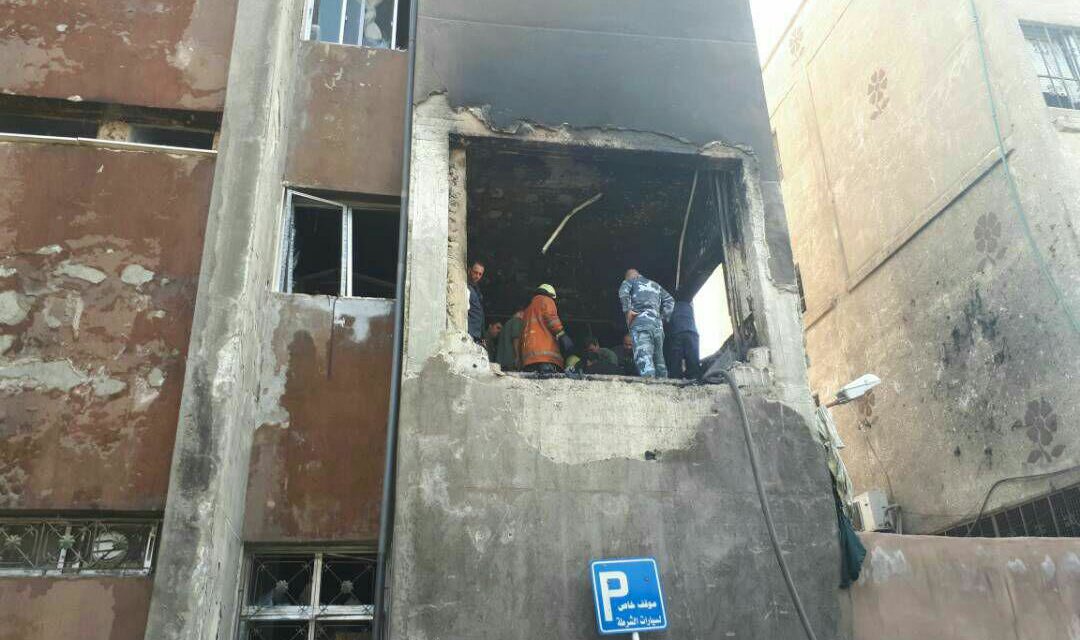“The problem with ‘Assad is winning, Assad is losing’ is that it doesn’t reflect the complexity of a country where no one wins.”
Four staff of Syria Direct write, with a contribution from EA WorldView:
The Islamic State fighters struck at night.
At around 11 pm last Friday, internet and phone service suddenly cut out in the regime-held central Homs town of Qaryatayn, home to roughly 14,000 people. In an instant, residents found themselves cut off from the outside world as gunshots rang out and Islamic State forces stormed the city.
It remains unclear just how IS fighters were able to cut their way through regime forces in and near the town, but by Sunday the Islamic State claimed to be in “full control” of Qaryatayn, after a “wide attack” deep within regime territory in Homs Province.
Those in Qaryatayn have not been able to reach family members elsewhere in Syria since, except via sporadic landline service. Syrian state media has not reported an IS capture of the town.
See Syria Daily, Oct 2: ISIS Counter-Attack Advances, Takes Town from Regime
Friday’s attack on Qaryatayn renewed a familiar sense of fear, current and former residents told Syria Direct in recent days—it was the second time Islamic State forces had invaded since 2015.
“This was a surprise to everyone in town,” one Qaryatayn resident, 55-year-old Abu Sameer, told Syria Direct via landline on Tuesday night, before communications totally shut down again on Wednesday.
As of Tuesday night, IS still reigns in Qaryatayn, forbidding residents from stepping outside their homes, said Abu Sameer, who has remained indoors with his wife and daughter since Friday.
“Whoever ventures outside,” he added, “has their ID card torn up — even if they are elderly.” Meanwhile on the streets, IS fighters were reportedly “looting grocery stores and pharmacies, stealing medicine”. Landline phone coverage only came for half an hour throughout all of Tuesday, Abu Sameer said.
A Bombing Damascus
The IS capture of Qaryatayn in Homs deep inside regime territory and a major attack in the heart of the Syrian capital Damascus days later complicate an overarching narrative in regime and Russian media of their forces’ march to victory as IS suffers major defeats in its heartland in Syria’s east. Victory against IS in the east does not necessarily mean peace at home.
The day after IS claimed to be in control of Qaryatayn, at least three suicide bombers attacked a regime police headquarters in Damascus on Monday, killing “dozens” of policemen and civilians, pro-regime webpage Damascus Now reported.
The Islamic State later released a statement of responsibility for the attack, claiming that “three soldiers of the caliphate” stormed the police station in Damascus’ southern Midan district using hand grenades and jackets laden with explosives.
Responding to the suicide bombing, Syria’s Interior Minister Mohammad al-Shaar called the incident a “desperate attempt to raise collapsed morale of the terrorist organizations after large defeats inflicted upon them” elsewhere, state news outlet SANA reported.
Monday’s deadly attack on Midan came despite widespread regime security checkpoints stationed throughout the traffic-clogged city, residents tell Syria Direct, indicating that the attackers likely slipped past heavy police scrutiny to reach their target.
“In all honestly, we don’t feel safe,” says 41-year-old Abu Ahmed, a father of four living in Midan, “even here in the heart of the capital.”
Assad’s “Resounding Victory”?
Early last month, Syrian regime forces barreled through the country’s largely empty eastern desert and reached the outskirts of the Islamic State-held city of Deir e-Zor along the Euphrates River, where government districts had been under siege by the group since 2014.
There regime forces broke through IS defenses and put an end to years of siege for thousands of civilian residents and government soldiers.
Hours later, Syrian President Bashar al-Assad called the breach a “resounding victory against takfiri thinking” in a phone call with army officers and soldiers, state news outlet SANA reported at the time.
Today, as regime forces—backed by Russian airstrikes—continue fighting IS for control of Deir e-Zor, some 85 percent of the city is now under Syrian government control, Russian Defense Ministry Spokesman Major General Igor Konashenkov told state-owned news website RT.
Last week Russia’s state news agency TASS reported glowingly that “victory over the terrorist forces is near” for the Syrian regime, now apparently in control of “85 percent of the country’s territory.”
However, much of that territory consists of sparsely populated, difficult-to-police stretches of land in central and eastern Syria. In part of that territory, IS fighters were able to attack and capture a town this past weekend.
“Control isn’t just simply occupying an area,” says Scott Lucas, founder of the Middle East-focused blog EA Worldview, and a professor of International Politics at the University of Birmingham. “You have to be able to re-establish your governance. That is the real challenge for them.”
Amid recent attacks by IS in Homs and Damascus, regime forces continue to fight the group across Syria.
On Monday, Syrian state media reported Assad’s forces drove out remaining IS fighters from Uqayrbat, a small holdout pocket within eastern Hama province, after a months-long battle.
And in Qaryatayn, residents could hear “sporadic sounds of artillery fire around the town,” on Tuesday night, Abu Sameer told Syria Direct. “We are hearing from our relatives in Damascus that the regime army is sending us reinforcements to liberate the city [from IS],” he added.
But could the attacks in Qaryatayn and Damascus prove a harbinger of a more complex “victory”, even as Assad appears set to remain in control of much of the country?
“The problem with ‘Assad is winning, Assad is losing’ is that it doesn’t reflect the complexity of a country where no one wins,” says Lucas. “Everyone loses.”

